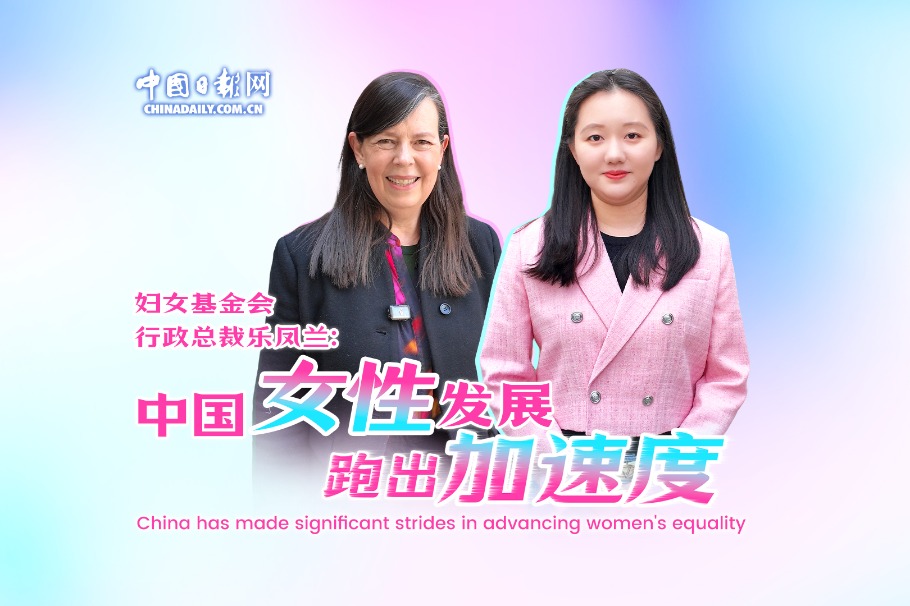Seasons greetings

At the beginning of December, more than 2,000 iPad apps were available while there were more than 4,500 iPhone apps. Most were released in November.
"For big players, Christmas is a normal chance to promote their leading apps," says Wu Gang, CEO of WiSTONE Wireless Entertainment Inc, the developer of War 2 Victory.
Though Ren's apps are not designed for Christmas, he says he has enough confidence that they will survive the onslaught of holiday-themed apps and become successful. Ren says his company has spent more than $500,000 in advertising during the holidays for his two new apps.
The main problem is that many Chinese developers are fixated on overseas markets. Most of the revenue for War 2 Victory is generated in the US and Germany. Wu says China is an important market, but nearly 70 percent of Wu's profits are from overseas consumers.
In a rapidly changing app world dominated by popular apps such as Angry Birds, Fruit Ninja and Plants vs. Zombies, it's been very difficult for Chinese developers to steer clear of simply releasing copycat apps and making original games. All are trying to become the next Rovio, which developed Angry Birds.
"The success of Rovio cannot be copied by Chinese developers," says Chen Haozhi, CEO of Beijing Touch Technology Co Ltd and the developer behind Fishing Joy. "Apps like Angry Birds are a result of great design, time, effort and opportunity, most of which are something we can't catch up to in a short time."
Chen is the founder of cocoachina.com, the largest social networking website for iOS developers, with more than 112,000 registered users. Chen said the future for Chinese developers isn't promising.
"The main reason is the difficulties in exploring overseas markets. Nearly 90 percent of apps developed by Chinese have no big differences. If one app gains great attention, then big groups of developers will follow (and make the same thing). This cannot bring success to Chinese developers," he said.
In Chen's opinion, the Chinese mobile game market isn't big enough to support thousands of developers. But that might not be entirely true. After the App Store in China began accepting payments in renminbi, the domestic market has grown immensely. According to Distimo, downloads of paid apps on the list of the top 100 apps in China has nearly doubled since Nov 18.
"The currency switch should have a positive effect on developers in China," Koekkoek says. "Since it is now easier to pay in China for many consumers, we think the trend (of increasing downloads) will continue in the future.
"Developers from China can definitely have a chance to stand out from the competition, especially when they focus on China to publish their apps."
Distimo statistics show that 56 percent of the most popular apps for the iPhone in China are popular only in China. Koekkoek says this means that Chinese customers have very unique preferences and adds that Chinese developers must begin designing games specifically for Chinese mobile phone users.
Still, there is a long road ahead for Chinese developers to capture the Chinese market after the recent acceptance of renminbi payments.
"Software registrations greatly delay the release of apps in the App Store and increase costs for developers," says You Yunting, partner of Shanghai DeBund Law Offices. "According to regulations of the Ministry of Industry and Information Technology, all the software shall be registered, including the copyright registration and software test. (Registration) requires 1,000 yuan ($157,120 euros) and it takes three to six months to complete while (the test) requires 2,000 yuan and one to two months."
He says although developers do not have to register their software, if they do not, developers may not get a refund on value-added taxes. If the App Store is eventually launched officially in China, taxes will become a problem for developers.
Another problem is that international competitors are moving fast to expand into the Chinese market. Companies such as Popcap, Rovio and Zynga are all planning ventures into China.
"To iOS developers, the potential in the Chinese market is great," Wu says. "The market is growing and people are getting used to paying (in renminbi), but we don't have any specific plan to develop apps for Chinese customers in the short term. Maybe in the future, more apps for Chinese will be issued."
Today's Top News
- Trump says 'a lot closer' to Ukraine peace deal following talks with Zelensky
- China pilots L3 vehicles on roads
- PLA conducts 'Justice Mission 2025' drills around Taiwan islands
- Partnership becomes pressure for Europe
- China bids to cement Cambodian-Thai truce
- Fiscal policy for 2026 to be more proactive






























